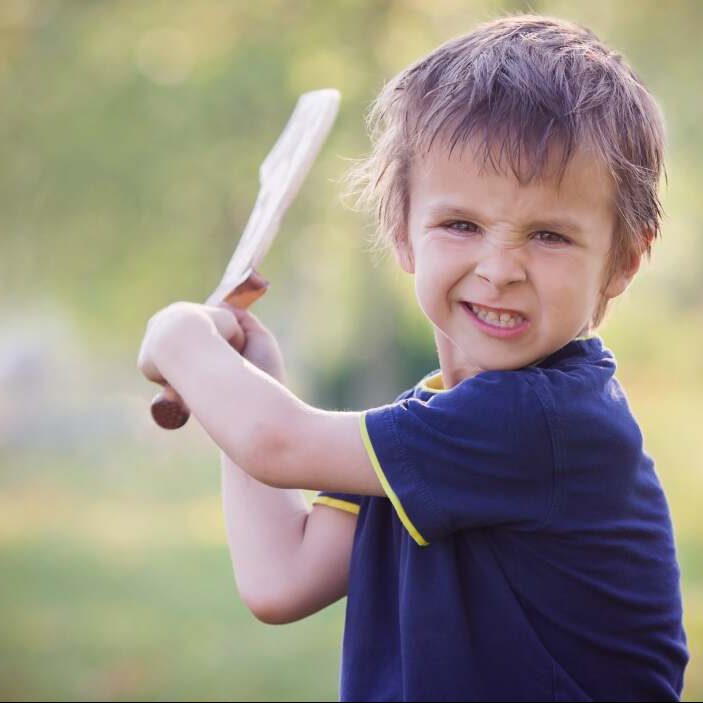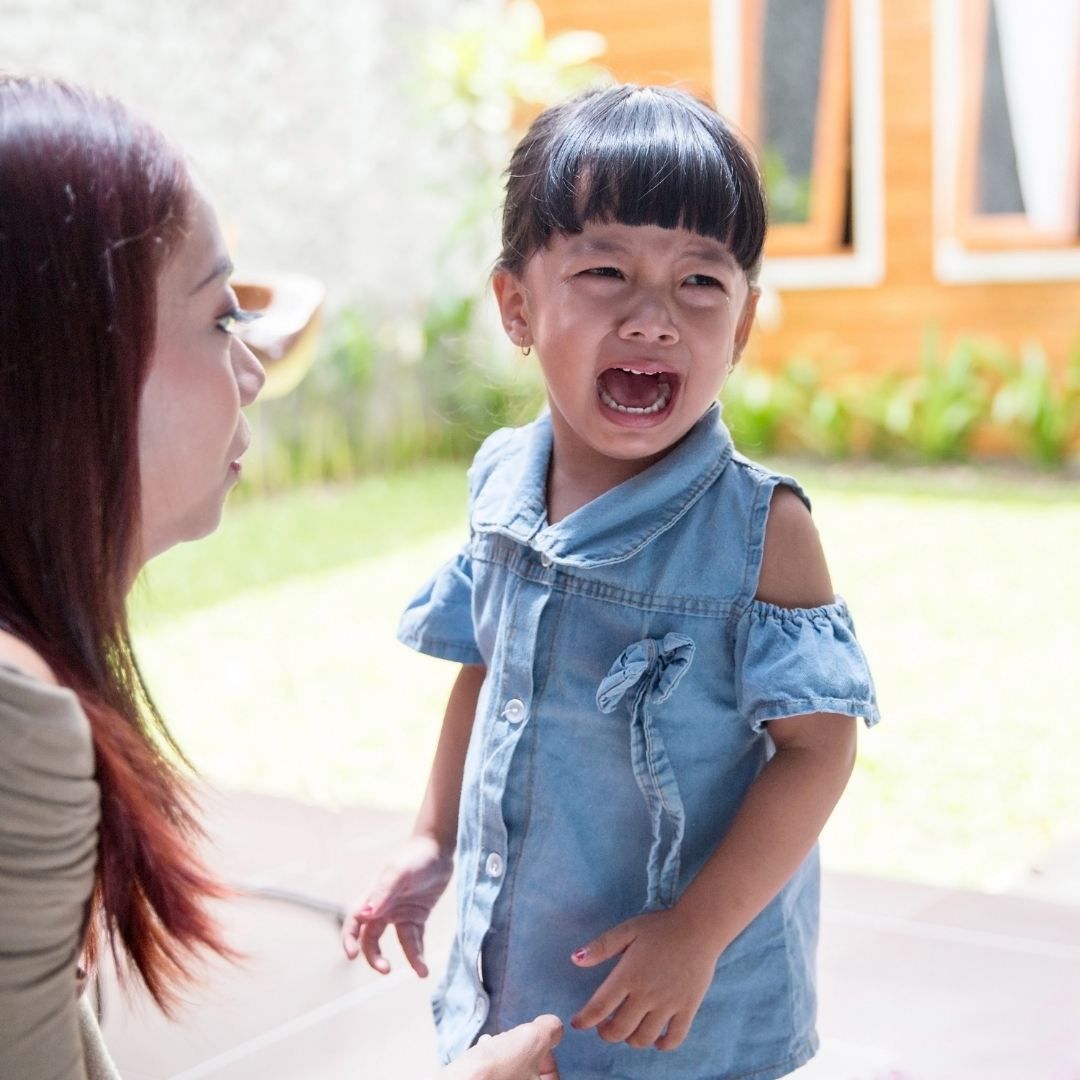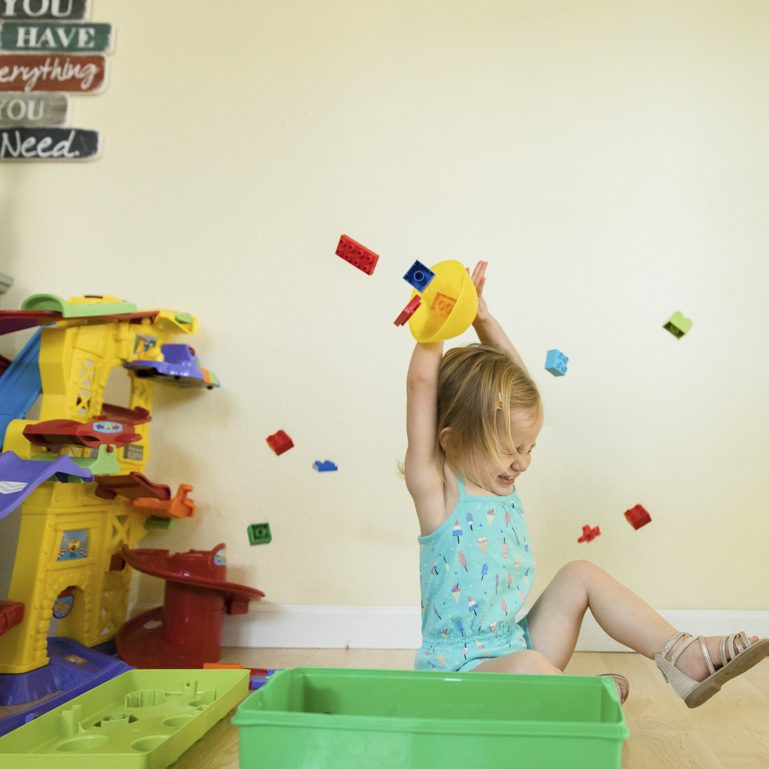Recognizing the Signs of Toddler Hitting
Recognizing when your toddler is hitting is crucial. Often, this behavior can start suddenly. You may observe your child lashing out with their hands. It’s also common for toddlers to hit during tantrums or when they’re frustrated. Look for slapping, pushing, or a quick smack. It’s not just about other children. Your toddler may also strike out at adults or pets. Pay attention to your child’s body language. Clenched fists, scowls, or a red face can signal upcoming aggression. Listen for growls or aggressive shouts, these are telltale signs. It’s important to act right away when you see these behaviors. Early recognition helps prevent more hitting. It also sets the stage for proper response and guidance.

Common Triggers for Hitting in Toddlers
Understanding why toddlers hit is key to managing this behavior. Here are common triggers:
- Frustration: Toddlers often hit when they can’t get what they want. Their limited language skills mean they can’t always use words to express their desires or disappointments.
- Attention-Seeking: A toddler might hit to get noticed, especially if they feel overlooked or if prior actions received attention.
- Imitation: Young children learn by copying others. If they see hitting around them, they may mimic this behavior.
- Testing Boundaries: Toddlers are learning about cause and effect. They may hit to see what reaction it provokes.
- Overstimulation: Too much noise, activity, or chaos can overwhelm a toddler. This can lead to hitting as a way to cope.
- Tiredness or Hunger: Basic needs greatly affect behavior. A tired or hungry toddler is more likely to hit.
- Defending Territory: If another child takes a toy or invades their space, a toddler may hit to assert control.
- Lack of Impulse Control: Toddlers have not yet developed the ability to control their impulses. Hitting can be a reflex when they are upset.
It’s crucial for caregivers to recognize these triggers and respond appropriately. By addressing the underlying cause, you can help prevent future incidents and guide your child towards better ways to communicate and behave.

The Developmental Perspective on Aggression
Understanding that hitting is part of how toddlers learn can be comforting for parents. Children at this young age are not fully equipped with the skills to manage their emotions. They react to the world in the simplest ways they know. As they grow and develop, they begin to understand how to express their feelings without aggression. During the toddler years, their brains are developing rapidly. However, they still lack the impulse control and empathy needed to handle frustration calmly. Toddlers are at a stage where they’re testing their abilities and the reactions of those around them. This often includes physical actions like hitting. Being aware of this developmental stage is critical. It helps caregivers guide toddlers towards more appropriate behaviors. Patience and consistent teaching during these years are essential. They help children develop the tools they need to control aggressive impulses as they mature.
Strategies to Respond to and Prevent Hitting
When your toddler hits, it’s important to act quickly and calmly. Understanding and preventing this behavior involves clear strategies. Here are some effective ways to respond and prevent hitting:
Stay Calm and Intervene
React to hitting calmly. Show your child that aggression doesn’t rattle you. Step in right away. Prevent harm and model self-control.
Understand and Address the Cause
Find out why your child is hitting. Are they tired, hungry, or overstimulated? Address their needs to avoid future incidents.
Teach Alternative Behaviors
Show your toddler other ways to express feelings. Teach them to use words or point to what they want. Encourage using words like ‘help’ or ‘mine’ to communicate.
Provide Positive Attention
Notice and praise good behavior. This teaches your child that gentle actions get your attention, not hitting.
Consistency is Key
Always respond to hitting in the same way. Consistency helps your child learn what to expect and the consequences of hitting.

Offer Choices and Control
Give your toddler choices to reduce frustration. This can be simple options like which shirt to wear or which snack to eat.
By following these strategies, you can help your child understand that hitting is not acceptable. You also offer them tools for better ways to cope with their emotions and interactions.
Addressing Emotional Triggers and Teaching Empathy
Addressing emotional triggers is crucial in managing toddler hitting. Identify what sets off your child’s aggressive behavior. It could be due to big feelings they can’t express in words. Pay attention to signs of frustration, anger, or sadness in your child. Offer comfort and help them name their emotions. ‘You seem angry because your block tower fell down.’ This helps them learn to identify feelings themselves.
Teaching empathy is key to helping toddlers understand the impact of their actions. Explain how others feel when they get hit. Use simple terms. ‘Hitting hurts. It makes your friend feel sad.’ Encourage your child to make amends after an incident. They can give a toy back or draw a picture for their friend. Modeling empathy as a caregiver is also important. Show care and concern for others. Your child will follow your example. This step is a long process but vital for your child’s social development.
Establishing Clear Boundaries and Consistent Consequences
When managing toddler aggression, setting clear boundaries is crucial. It helps toddlers understand the limits of acceptable behavior. To do this effectively, parents and caregivers must be consistent in their approach. This consistency gives children a sense of security and predictability, which is key in helping them regulate their own behavior.
Clear Boundaries
Start by defining clear rules around hitting. Explain these rules in simple terms your child can understand. For example, say ‘We do not hit. Hitting hurts others.’ Ensure the rules are the same across all settings, whether at home, daycare, or with relatives.
Consistent Consequences
When your toddler does hit, apply consistent consequences immediately. Consequences should be age-appropriate and directly related to the behavior. For instance, if your toddler hits, they might need a brief time-out. Or, they might need to leave a playdate early. Always explain the consequence so your toddler understands the link between their action and the result.
In addition to consequences, it’s helpful to offer your child a path to make amends. Encourage them to say sorry or offer a comforting gesture to the person they hit. This reinforces the idea that hitting is wrong and shows them how to repair relationships.
Remember, the main goal is to help your child learn self-control and respect for others. By setting clear boundaries and consistent consequences, you’re guiding them towards more appropriate social behavior.
The Role of Caregivers and Modeling Positive Behavior
Why is my toddler hitting me? Caregivers play a crucial role in managing toddler hitting. The way adults behave has a big impact on young children. If you are calm and gentle, your toddler is more likely to be too. Always respond to hitting with kindness, but be firm in your message. Teach by doing. Show your toddler how to solve problems without hitting.
Model healthy ways to deal with anger. Take deep breaths or count to ten when you’re upset. Your toddler will learn these methods too. Praise your child when they use words instead of hitting. It shows them the right way to behave. Stay consistent in your actions and reactions. Your toddler needs to see the same behavior from you to learn.
Be an example of respect and love in all you do. Your toddler watches and copies what you do. If you shout or throw things when angry, they might think it’s okay to hit. Show empathy to others. It teaches your toddler to care about other people’s feelings. Your actions are powerful. They shape your toddler’s behavior more than words alone.
When to Seek Professional Help for Aggressive Behaviors
Seeking professional help for your toddler’s aggressive behavior may become necessary. This is true if simple strategies fail or behaviors worsen. Watch for these signs that suggest it’s time to consult a professional:
- Frequent or Intense Aggression: If your child often hits or does so with strong force, it’s a concern.
- Harm to Self or Others: Seeking help is key if your child’s hitting results in harm.
- Long-lasting Tantrums: Tantrums that last a long time and include hitting can signal deeper issues.
- Changes in Mood or Behavior: Sudden changes in how your child acts or feels can mean trouble.
- Difficulty with Change: Notice if your child struggles to adapt to new routines or environments.
Professionals can offer guidance tailored to your child’s needs. They use proven methods to manage aggression. This helps your child learn healthier ways to cope. A pediatrician, child psychologist, or behavior therapist can provide valuable support.
Remember, every child is different. Some may need more help than others. There’s no shame in asking for support. It is a step towards ensuring your child’s healthy development.


